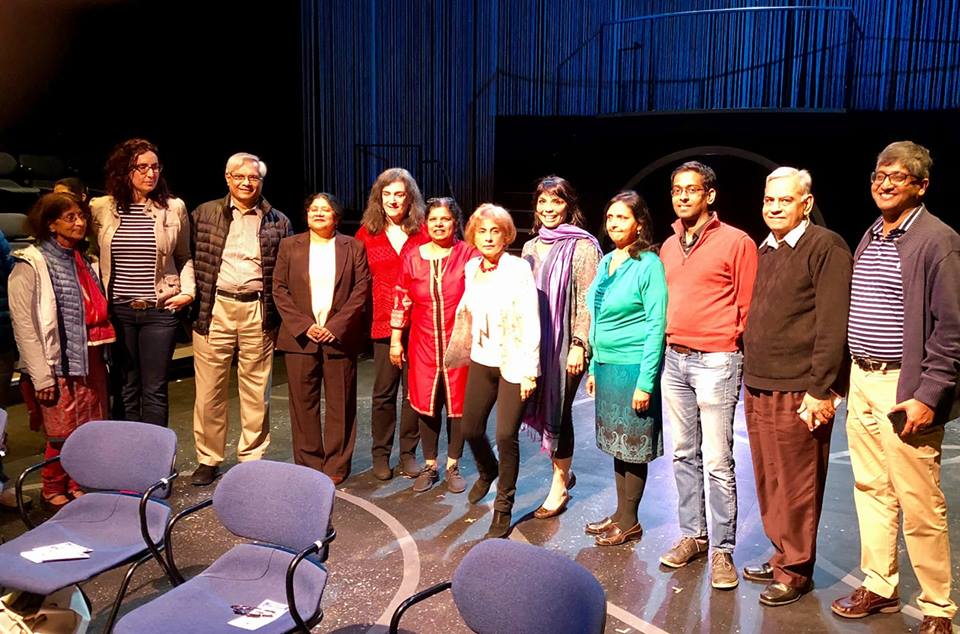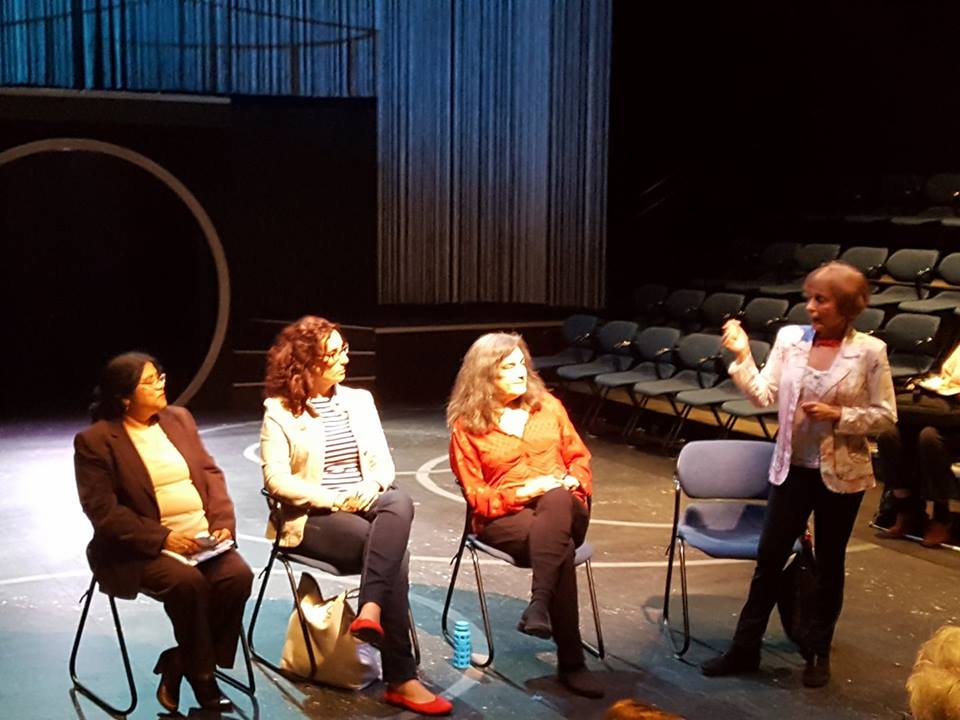"The Women Who Mapped The Stars,†running at Central Square Theater, is one of the first offered in the Brit d’Arbeloff Women in Science Production series. It is about five women, dubbed the “computers,†who made startling discoveries in astronomy. However, they were assigned mundane tasks at their work at the Harvard College Observatory and kept in the background. The presentation of the play was followed by a panel discussion hosted by IITAGNE to the discuss the current state of women in science.
IIT AGNE in partnership with Central Square Theater presented a special performance and discussion on May 12th. “The Women Who Mapped The Stars,†running at Central Square Theater, is one of the first offered in the Brit d’Arbeloff Women in Science Production series. It is about five women, dubbed the “computers,†who made startling discoveries in astronomy. However, they were assigned mundane tasks at their work at the Harvard College Observatory and kept in the background.
The play begins with a dramatic scene when Williamina Fleming (Becca A. Lewis), a recent immigrant and pregnant with her first child, enters the stage in her nightgown searching for her missing husband. The plot jumps ahead to the late 19th century. Mina, now a widow with one child, has been promoted from her job as a housemaid employed in the home of Edward Charles Pickering, to head clerk at Harvard’s Observatory. Pickering is director of the Observatory, but we never find out how Mina made the leap, or anything about the man who gave her the opportunity.
Mina works with Henrietta Swan Leavitt (Sarah Oakes Muirhead), a reclusive but brilliant Radcliffe graduate; Annie Jump Cannon (Sarah Newhouse) with a photographic memory that allows her to remember the thousands of stars she records; and the feisty Antonia Maury (Christine Power), whose aunt, a Draper by marriage, funds the work of Harvard’s male astronomers and these women supporting them. The women work six days a week, only using photographs of the stars. They are barred from looking through the telescopes used by the male scientists, and earn half the salaries of the men.
The outlier-character is Cecilia Payne (Amanda Collins), a British-born woman who arrives at Harvard Observatory in 1923. She serves mostly as the narrator of the considerable amount of exposition that’s needed, and to voice her admiration for this first cohort of women.
Along the way, she asks many interesting questions. “Can I be who I am?†She wonders if she can have a lover-husband and children in addition to a career as an astronomer? Payne will go on to make her own major discovery, and become the first female department head at Harvard, along with marriage and three children.
It was fascinating to hear the tale of these women who were indeed some of the greatest astronomers who had contributed so much to astronomy. To see their struggle and to see them succeed despite great odds was inspirational. Watching the play one did feel women’s life has changed quite a bit. Yet something continues to remain the same. Unequal pay for equal work continues to be a challenge.
“I read a few of the works written by some of the women which gave me an insight into their lives. There are some historical things in the play as well – for example in the Library at Harvard there were ridiculous rules like women could enter but not sit down for a long time. I worked with the actors and the producers to craft the playâ€, says Joyce Van Dyke, the Playwright who was featured in the panel discussion that was hosted by IIT AGNE following the play. The discussion was moderated by Raji Patel, Co-director, MIT NASA Space Grant Program. The discussion focused on the current issues facing women in STEM. Prof. Meenakshi Narian, an IIT Alumni, the playwright, Joyce Van Dyke and Regina Jorgenson, Director, Maria Mitchell Observatory discussed the issues that face women in STEM today and discussed the path forward.
For Women in STEM like myself the play was absolutely wonderful for we could identify with so many issues the characters addressed. It was a great partnership for IIT AGNE to collaborate with the Central Square Theater and we look forward to future events at the theater.



